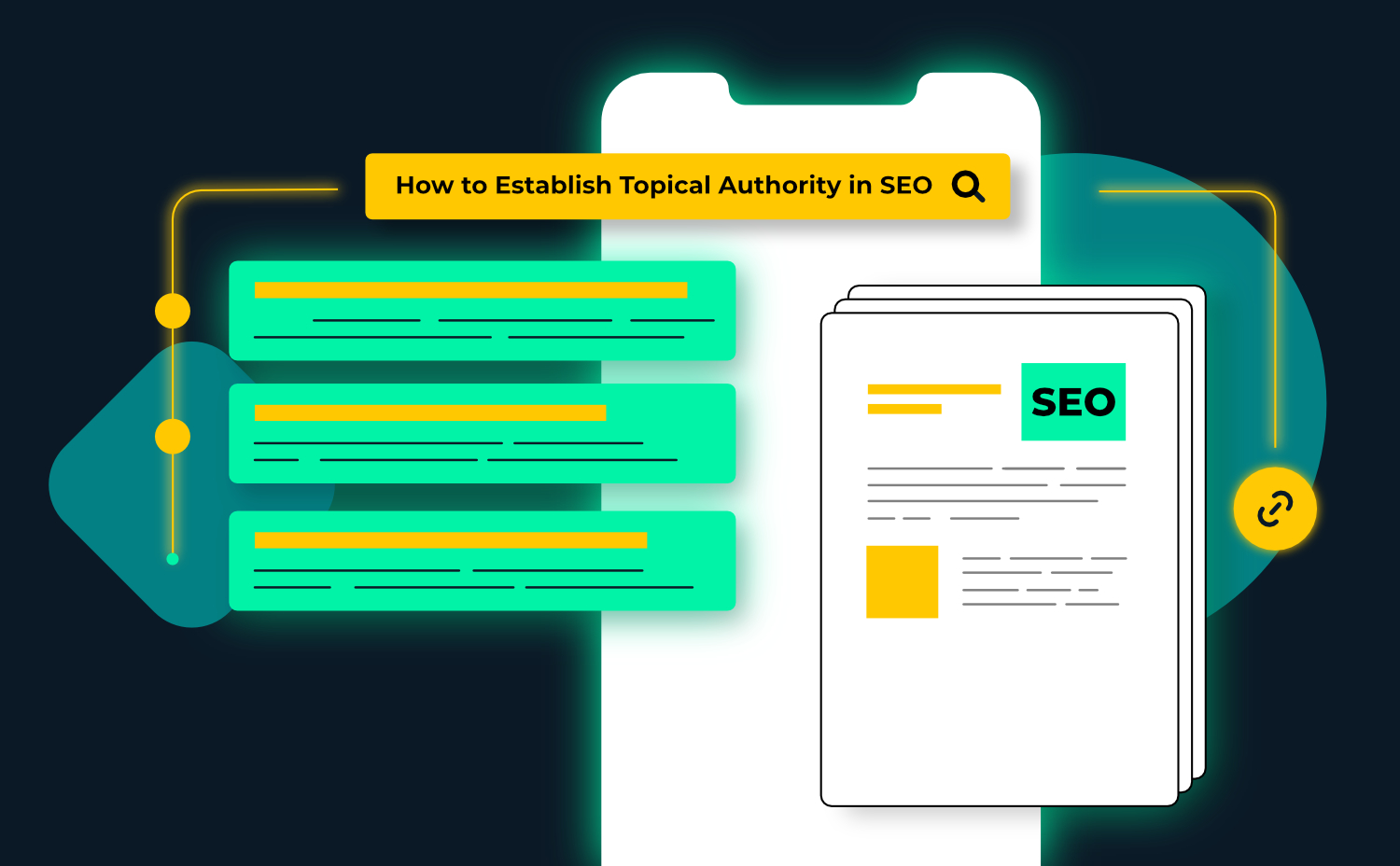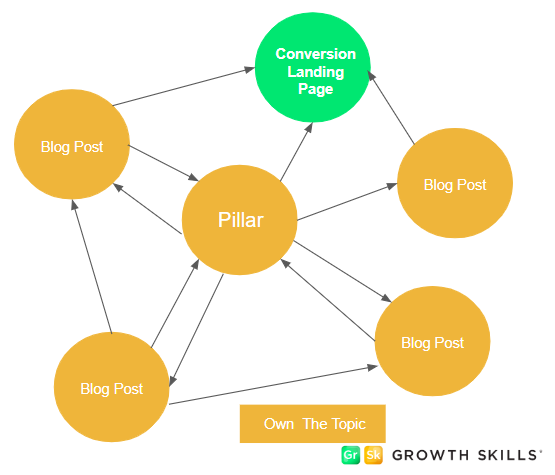
How to Establish Topical Authority in SEO
In the AI-driven search engine landscape, there’s only one way to win at SEO: establish topical authority for your niche.
In this blog post, we will cover what it means to establish topical authority, the key components of building it, how it’s measured and maintained, and common mistakes to avoid.
What is Topical Authority in SEO?
Establishing topical authority in SEO is the process of creating a robust library of content around one particular topic. Every piece of content must satisfy user search intent by answering people’s questions and providing potential solutions to their problems. These are referred to as topic clusters.
Topical authority is different from domain authority, a popular off-site SEO metric utilized to determine a website’s authoritativeness. Domain authority is based on the number and quality of backlinks a website has and is a score between 0 and 100. In contrast, topical authority is the breadth and depth of content an entity has on any given topic.
It’s important to distinguish between topical and domain authority, but it’s equally important to understand their relationship. Improving domain authority, which is done by getting a lot of high-authority backlinks from niche-relevant websites, requires a robust library of high-quality content that covers a topic so well and in-depth that people naturally want to send backlinks to it because it helps their content become more valuable.
The days of reaching out to websites and asking for backlinks or guest posting opportunities are over. Focusing on building out topic clusters and establishing topical authority will help you earn backlinks and improve domain authority faster than any outreach program.
Key Components of Building Topical Authority
Building topical authority is critical to dominating the SERPs and attracting your target audience to your marketing funnel rather than your competitors.
To establish topical authority, you need to create a content marketing strategy focused on garnering the attention of your target audience by answering their questions and solving their problems. Once the problem to be solved has been identified and you have product market fit, you can determine the keywords that your potential customers are searching for to find your product offering.
Once the head keywords are identified, you will want to build a “pillar page” or “hub page” targeting that head keyword. This will be an in-depth piece of content that needs to be superior to anything else that exists on the SERPs.
For example, consider a company that sells a machine to make gourmet ice cream at home. The ice cream company could create a pillar page titled “The Ultimate Guide To Homemade Ice Cream,” which provides all the details on how to make the best ice cream at home. Throughout this pillar piece of content, it can mention different flavors of ice cream like chocolate, strawberry, pistachio, brown butter praline, cookie dough, etc. Once this ultimate guide to homemade ice cream is created, the company can create content that targets all of the flavors that the pillar piece briefly mentioned—how to make chocolate ice cream, pistachio ice cream, etc. These articles will be linked from the pillar page, and then, in turn, they will link to one another; this establishes a content cluster, which is the backbone of establishing topical authority.

Measuring & Maintaining Topical Authority
It’s important to measure whether your content marketing strategy is actually achieving topical authority. You can use tools like Ahrefs’ topical authority feature and SEMrush’s topic research tool, and you should ensure you are tracking all of the keywords you are targeting.
The data from these tools can be cross-referenced with internal data sources like Google Analytics 4 and Google Search Console. If keyword rankings improve, that will be reflected in Google Search Console impressions and organic session data in Google Analytics. Ultimately, the goal of organic traffic is to get people to buy your product or utilize your service offering. So, it’s essential to have the proper tracking setup to know if the organic sessions are converting to become customers.
If you find that some of your topic clusters or an individual blog post of a topic cluster isn’t performing well, consider running an audit of the cluster or piece of content and update it as necessary. New information could be included on the topic that wasn’t available or known when the piece was originally written. Or there’s a new competitor on the scene who created something better, so now you are in a position where you have to revamp your content to compete with this new competitor.
Consider a process for when to update, optimize, or consolidate content to ensure that you are truly establishing topical authority. If you are, this will be reflected in keyword rankings, organic search impressions, organic traffic sessions, conversions from organic traffic, and backlinks earned.
Common Mistakes to Avoid
You want to make sure to avoid certain mistakes when trying to establish topical authority.
Targeting Too Broad or Too Narrow Topics
If you try to go in-depth on too many different topics, you risk diluting your authority. This will result in establishing topical authority in none of the topics you’re targeting. You also risk becoming too niche, to the point where your target audience is too small for the effort to be worth it.
Ignoring User Intent
Understanding user intent and behavior is the foundation of successfully establishing topical authority. If you don’t understand the questions that your audience has and the problems they are trying to solve with their search engine queries, then you are never going to create the right type of content that’s necessary to build topical authority.
Overlooking Internal Linking
Even if you’ve found the right balance of going in-depth on a topic but not keeping your focus too narrow, and you have accurately identified your audience’s user search intent, if you don’t have your topic clusters properly optimized with internal linking, then Google will never recognize your website as a topical authority entity in your niche. Internal links are how the Google bots crawl websites, and the easier it is for the bots to recognize content clusters via internal links, the easier it is for them to recognize your website as an authority figure in the space.
Conclusion
The process of establishing topical authority is not a mystery. Many companies have accomplished this and generated millions and millions of dollars in revenue. It just takes an expert understanding of your target audience, their search behavior, questions, and problems they’re trying to solve. Utilizing that knowledge to create a content strategy that satisfies those needs. Executing that content strategy by building content topic clusters. Then, ensure that the internal linking structure is set up so that Google and users can easily recognize that you have a depth of knowledge on the topic in which you are trying to establish authority. With ongoing analysis and maintenance, you will surely attain the organic visibility you seek.



